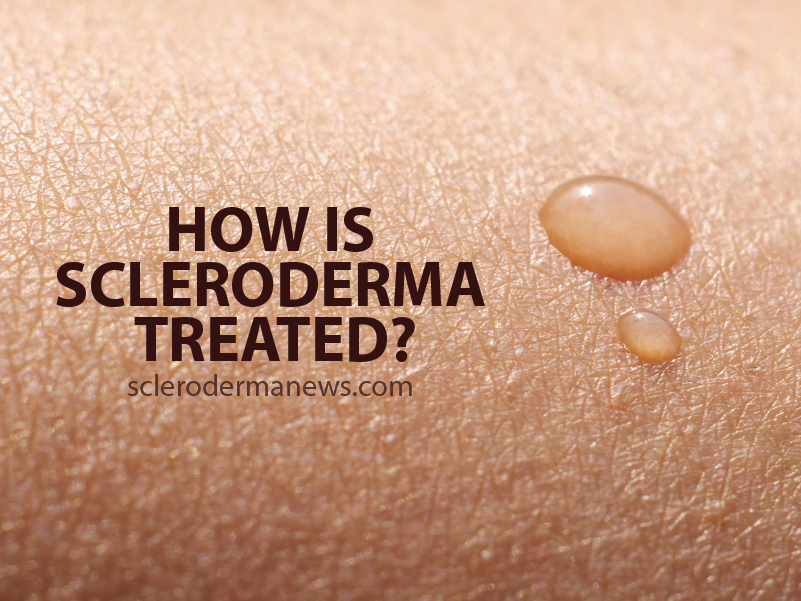How Is Scleroderma Treated?
Written by |


According to National Institute Of Arthritis And Musculoskeletal And Skin Diseases (NIAMS), a rheumatologist (a doctor who treats arthritis and other diseases that cause swelling in the joints) may lead your health care team and refer you to other health experts for problems with:
- Skin
- Kidneys
- Heart
- Digestion
- Lungs
- Teeth
- Movement
- Speech.
Scleroderma has no cure, but symptoms and damage can be reduced. Below are some complications and treatments for systemic scleroderma. The following are not associated with localized scleroderma.
Raynaud’s Phenomenon
Most people with scleroderma have Raynaud’s phenomenon. It can affect the fingers, feet, and hands. It makes them change color if you are too cold or anxious. To help, you can:
- Not smoke.
- Dress warm, and keep hands and feet warm.
- Perform exercises that relax the body.
- Ask about medicines that open small blood vessels and help with blood flow.
- Ask about medicines that treat skin sores and ulcers.
Stiff, Painful Joints
Stiffness and pain come from hard skin around joints and joint swelling. To help, you can:
- Perform stretching exercises that help with joint motion.
- Exercise regularly (swimming is best).
- Take medicine to help ease pain or swelling. Ask your doctor which are the best for your particular condition.
- Learn to do daily tasks in ways that puts less stress on the joints.
Skin Problems
With scleroderma, collagen builds up in the skin. Too much of it can make your skin dry and stiff. To help, you can:
- Use oil-based creams and lotions after every bath.
- Use sunscreen.
- Use a humidifier at home.
- Avoid hot baths or showers.
- Avoid strong soaps, cleaners, and chemicals. Wear rubber gloves if you have to use those products.
- Exercise regularly.
Dry Mouth and Dental Problems
If you have tight skin on your face, you may have trouble caring for your teeth. Dry mouth speeds up tooth decay. Harm to tissues in the mouth can loosen teeth. To avoid problems:
- Brush and floss your teeth each day.
- Have frequent dental checkups.
- See your dentist if you have mouth sores, mouth pain, or loose teeth.
- Ask your dentist about special rinses and toothpastes.
- Learn ways to keep your mouth and face flexible.
- Keep your mouth moist. You can drink lots of water or suck on ice chips. You can also chew gum or suck on hard candy that has no sugar added.
- Avoid mouthwash that has alcohol.
If dry mouth still bothers you, ask your doctor about helpful medicines.
Gastrointestinal Problems
Digestive problems can include:
- Heartburn
- Trouble swallowing
- Feeling full as soon as you start eat eating
- Diarrhea, constipation, and gas.
To help, you can:
- Eat small, frequent meals.
- Stand or sit for 1 to 3 hours after eating.
- Use blocks to raise the head of your bed.
- Avoid late-night meals, spicy or fatty foods, alcohol, and caffeine.
- Eat moist, soft foods, and chew them well.
- Ask your doctor about medicines for diarrhea, constipation, and heartburn.
Lung Damage
Problems include:
- Some loss of lung function
- Severe lung disease
- Scarring of lung tissue
- High blood pressure in the artery that carries blood from the heart to the lungs.
Watch for signs of lung disease, such as:
- Fatigue
- Shortness of breath
- Problems with breathing
- Swollen feet.
As soon as your skin starts to thicken, see your doctor. Get regular flu and pneumonia shots.
Heart Problems
Problems include:
- Scarring and weakness
- Swelling of the heart muscle
- A heartbeat that isn’t normal.
These problems can all be treated.
Kidney Problems
Scleroderma can cause very high blood pressure and kidney failure in some people. Learn to spot problems right away.
You should:
- Check your blood pressure often.
- Check your blood pressure if you have new symptoms.
- Call your doctor if your blood pressure is higher than normal.
- Take the medicines your doctor prescribes.
Cosmetic Problems
Scleroderma can damage your skin and change how it looks. These skin changes can affect your self-image. Ways to fix skin damage include:
- Lasers that take away red spots on the hands and face.
- Plastic surgery in areas where the disease is not active.
Learn more about the disease here: https://bit.ly/learnscleroderma
Scleroderma News Today is strictly a news and information website about the disease. It does not provide medical advice, diagnosis or treatment. This content is not intended to be a substitute for professional medical advice, diagnosis, or treatment. Always seek the advice of your physician or other qualified health provider with any questions you may have regarding a medical condition. Never disregard professional medical advice or delay in seeking it because of something you have read on this website.





